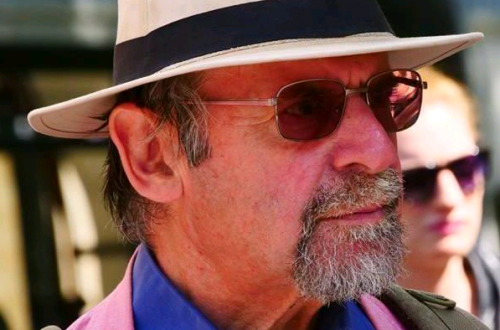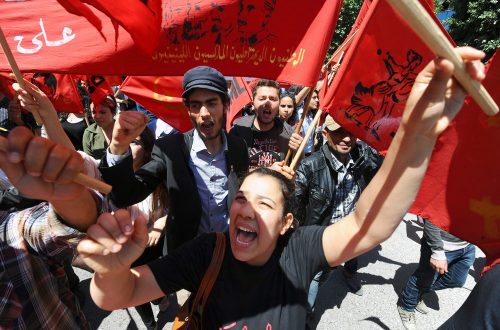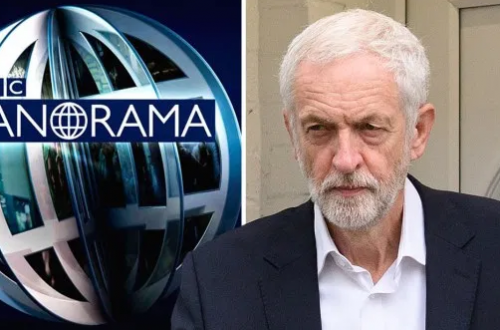This is a guest post by Jonny Paul
Last week, the University and College Union (UCU) were cleared of harassment by an employment tribunal. The case was raised by a Jewish UCU member who grew sick of the incessant focus by a vocal minority of activists embedded in the union, and their obsession with a boycott of everything and anything that smells Israeli. The academic boycott campaign against Israel began in 2002 in the two unions which merged in 2006 to form UCU. Ronnie Fraser, a college lecturer and UCU member, was deeply disturbed by the relentless hatred of Israel in his union and with the anti-Semitic rhetoric and culture that accompanied it. The boycotters never gave good reason or even a small clue as to why their enthusiasm to penalise and isolate Israel has been so much greater than their concern with human rights abuses and crimes against humanity across the globe.
The last straw for Fraser, after having endured this hostile culture for so long, was when the union decided to disavow the European Union Monitoring Centre on Racism and Xenophobia’s definition of anti-Semitism. It did this because some of the things which were normal within the union were defined as anti-Semitic by that definition. The UCU decided in 2011 that the definition stifles debate and is used to deflect criticism of Israel. Naturally there is nothing wrong with criticising and holding to account the actions of the Israeli government – this is done on a daily basis in Israel’s free press, parliament and civil society. Fraser argued that the anti-Israel rhetoric and boycott calls created a culture and an atmosphere in which Jews could not participate comfortably as accepted members of the union. The accusation made by the official leadership of the Jewish community, was that the union had become “institutionally racist.”
Last week the UCU posted a statement on its website stating that it had been cleared in a case of a member who “opposed the union’s policy on Palestine”. It had nothing to do with its “policy on Palestine” – the union and its members have an innate right to take any position they want on the issue. The problem is that the union’s “policy on Palestine” seems to have been hijacked by agenda-ridden Stockholm syndrome sufferers and used to batter into submission anyone sympathetic to Israel. They tend not to offer a solution; instead they perpetuate conflict. What they do for the Palestinian cause, a legitimate one that deserves its own page, is an enigma. What is clear is that honest and decent debate and understanding of the conflict is the victim.
The case was about the red lines crossed by those activists who had bandwagoned the plight of the Palestinians to demonise and delegitimize Israel. It made hanging out at the UCU extremely uncomfortable for Jewish UCU members sympathetic to Israel. They faced with choosing either to stay quiet, or to stand in the dock for Israel. The case had nothing to do with trying to deflect criticism of Israel pigeonholing it as “anti-Semitism”. It was also not an attempt also to shut down debate. Fraser just hoped for honest and decent debate with agendas and the narrative wars left at home, and for the union to recognise that a culture of anti-Semitism was breeding underneath their noses.
Supporters of a boycott want British academia to sever ties with Israeli institutions, they want to annul programmes of collaboration between university departments and stop faculties from sharing ideas and resources. They want to cease any cooperation between Israeli academics thereby consigning academic freedom and the free exchange of ideas – the very principle of academia – to the incinerators of the civilised world. The boycott campaign has led to a culture that tolerates harassment and discrimination. An Israeli PhD student at Oxford University had his application for a research position rejected on account of his national service. A lecturer at University of Manchester dismissed two Israeli academics from the editorial board of a journal she published. At one UCU conference a faculty member from University College London told participants that any legal action brought by the Jewish community to try and halt the boycott would be financed by those with “bank balances from Lehman Brothers that can’t be tracked down”. In court, Fraser disagreed with the activists who said that Israel did not allow aid into Gaza. He was accused of being like the Nazis at Theresenstadt – who tried to fool the world into thinking that conditions in concentration camps were humane. Fraser had wanted to debate, but was answered by what can be described as anti-Semitic abuse.
In 2009, the union invited Bongani Masuku, from the Congress of South African Trade Unions, to a forum to campaign for the boycott, divestment and sanctions campaign against Israel. Masuku was under investigation at that time by the South African authorities for hate-speech, and was found guilty the day before he appeared at the event as a guest of UCU. The union had full knowledge of the events. I asked the UCU at the time if it was not counterproductive to give Masuku a platform. I even sent them a transcript of the ruling. The union told me that the sources were “not credible” and that the UCU “does not comment on stuff doing the rounds on the Internet and in the blogosphere, and never will.”
Last year, Masuku said that the Marikana miners’ massacre, in which South African police killed 34 striking miners, “diverts attention” from Israeli policies”. I wrote to Masuku to ask him if he would substantiate the claim. This is what he said in his reply:
“COSATU shall not be dictated to by Mossad, who must say what, when? Just mind your affairs and end colonialism and apartheid in Palestine, give back to original landowners what belongs to them”.
Ronnie Fraser decided that enough was enough and saw fit to challenge the union in court. Every year for the last decade he had seen his union devote huge amounts of time discussing a boycott of Israel at its annual conference, also at the expense of deliberating the concerns of union members, such as working conditions and pay. We should commend Fraser for his principled stance; there was no agenda, no desire for greatness. He just wanted honest and fair dealings and for the union to take a stance when members said they felt harassment and discrimination.
Although the UCU have promised to see if they could make improvements, there is nothing positive to be taken from the judgment. The tribunal agreed with the union on every count. Fraser had said that he felt that he had felt the flames of anti-Semitism. The tribunal heard his evidence and then told him that the way he had been treated was entirely correct. The UCU said it “will look at our own processes to see if improvements can be made in line with the advice given to us within the decision,” yet the decision did not find that the union had done anything significant wrong, it even congratulated it for handling the situation correctly. Such a judgment will not encourage self-reflection or a review of processes or even a desire to do things differently. The union does not now have to be careful going forward. It will remain at the mercy of the sinister agendas of hardcore activists. Even though the union says it is officially “opposed to discrimination of any kind including anti-Semitism”, it has been enthusiastically encouraged and reassured in its present path by the tribunal.


